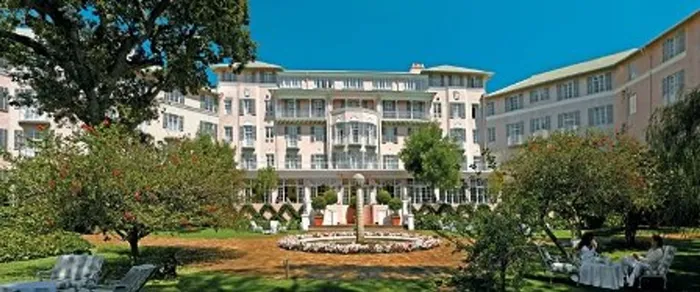It's high tea and worms at the Nellie

You, like me, may be under the impression that a tour with high tea and worms at the Nellie is the kind of things that tourists do. But no, our group of 20 were home-grown.
And speaking of growing, the tour starts in the worm farm. While Mary Murphy of Full Circle talked of rioting Italians because the landfills were full and their rotting garbage was lining the streets, 600 000 wrigglers were chomping away on top-quality kitchen waste.
The Mount Nelson is the first hotel to have taken on the challenge of reducing their waste, and hopefully other establishments will follow suit.
And while the Mount Nelson worm farm may be a lavish home for worms, it is a good way for people to learn how and why we need to reduce, re-use and recycle.
Full Cycle approached the Mount Nelson two years ago with the idea of setting up a worm farm. "Some thought it was a barney idea," said Mary with a laugh. "But because of the hectic issue with waste removal, both locally and globally, Cape Town last year admitted to a waste crisis.
"The days of expecting the government to solve our problems are over, and we each have to take responsibility for our own waste."
Within months of setting up the worm farm, hotel management saw the benefits, with less waste and nutritious fertiliser.
But it takes a special kind of worm to break down kitchen waste and other organic matter, such as newspaper, cardboard and even cotton T-shirts.
"They don't like fats, such as meat, because they don't have teeth," said Mary, showing us the thin red worms, called wrigglers.
"They would die in a garden but they're incredibly efficient at converting waste to rich compost," she added.
It takes four to six months to get your first tray of compost. But a by-product of worm farming is a liquid called vermitea - actually worm pee. The worms can produce 2 litres of it each week, and it should be diluted in a 1:10 ratio - that's a lot of plant food. Another spin-off is seedlings, because the worms don't eat anything that is living.
Many people left after the worm farm talk but a few stayed for the garden tour, some keen to know about compost at the Nellie.
Gardeners Andrew Nkomo and Taliep Davids who have been with the Nellie for 32 and 20 years respectively, took us to the nursery, stopping on the way at the compost area.
The nursery is a colourful sight with mainly exotic plants - something that we queried, seeing that we live in the world's richest floral kingdom. "Maybe it's because we have to keep to Orient Express criteria," said food and beverage manager Michael Graser.
The Nellie is a conglomeration of five wings, all set in private gardens, and lavishly watered and pampered. There is Taunton House, Green Park, Helmsley and Hof Villas - the latter was once staff accommodation. The main hotel is reached opposite Government Walk following leafy Palm Avenue.
On our war around we snuck into some of the rooms, lavishly decorated with sunken televisions, rich woods and floral fabric reminiscent of the days of the Union Castle Line.
The Mount Nelson was opened on March 6 1899, the imaginative idea of shipping magnate Sir Donald Currie. It was acquired by Orient Express hotels, trains and cruises in 1988.
The hotel has hosted many famous people, including Sir Winston Churchill, the Prince of Wales in 1925, Cecil John Rhodes, Rudyard Kipling, John Lennon and Agatha Christie.
Serenity and seclusion are key words. The complex has two heated swimming pools - one for adults only - all against the backdrop of Table Mountain, Lion's Head and Signal Hill.
Walking through the adults-only swimming area, we asked about a large chimney. "It was the laundry," said Taliep, adding that this was before the days of washing machines.
Although the hotel is about 100 years old, it has kept up with modern trends. Recently, the lighting has been changed in the rooms so that a master switch at the entrance switches off all lights.
The hotel has gone one step further from the ghastly energy-saving light bulbs to halogen bulbs, and double glazing is being installed in many rooms and communal areas to cut down on airconditioning and heating.
High Tea at the Nellie is aimed at attracting those who don't have the opportunity to visit the hotel. The tour includes the worm farm, the gardens, as well as high tea, including cucumber sandwiches, petit fours, iced cakes, scones with cream and compote, tea and coffee.
To book a tour, visit www.mountnelson.co.za
For more information on worm farming and vermiculture visit www.fullcycle.co.za